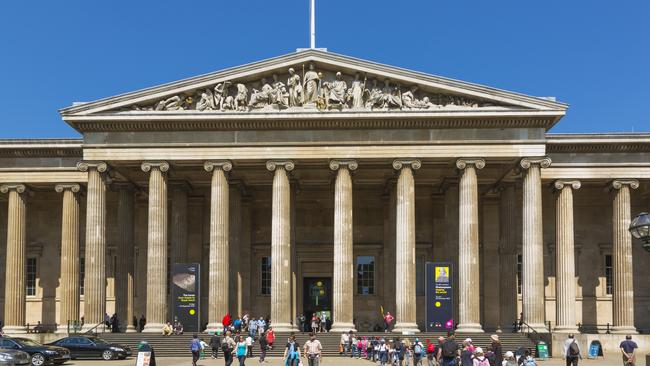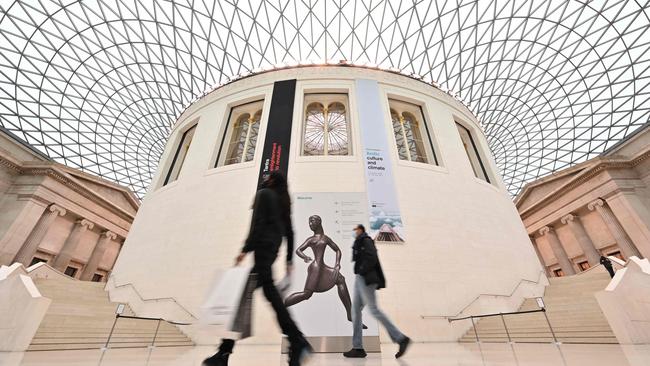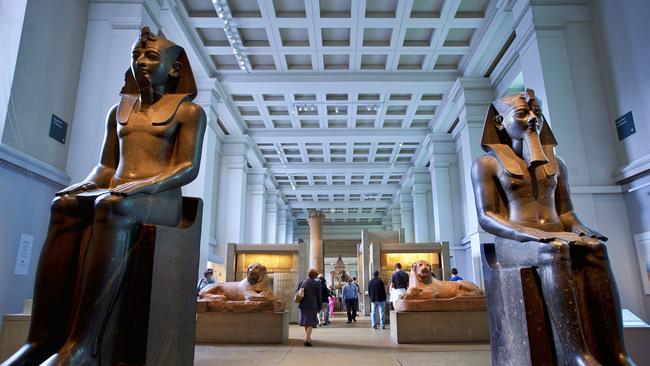Jewellery stolen from British Museum
A staff member has been sacked and investigations are underway into what is believed to be the biggest security breach the museum has seen in a decade.

Gold jewellery and semi-precious gems are among artefacts that have been stolen from the British Museum in what is believed to be the largest breach of security in a decade.
A member of staff has been dismissed and a review is under way after a number of items were found to be missing from a storeroom, stolen or damaged, the museum said yesterday (Wednesday).
It said it would be “taking legal action against the individual” and added that the Metropolitan Police’s economic and crime command was investigating.
Last night (Wednesday) the museum would not confirm the seniority of the sacked staff member, how many items had been stolen or their value. It is understood that the thefts have been going on for a significat period of time. In a press release the museum said none of the stolen artefacts, which date from the 15th century BC to the 19th century AD, had been on public display recently, and that they were kept primarily for academic and research purposes. The majority were “small pieces”, it added.

George Osborne, the museum’s chairman, said its priority was to recover the stolen jewels. He said it would do “whatever it takes” to increase security to avoid further theft.
Hartwig Fischer, the museum’s outgoing director, apologised for a “highly unusual incident”.
The security lapse appears to be the most significant since a Cartier ring worth pounds 750,000 went missing in 2011. The circumstances behind the disappearance of the ring, which had been given to the museum by an anonymous donor and kept in an area not accessible to the public, remain unclear.
In 2004, 15 pieces of medieval Chinese jewellery dating from AD700 to 1400 were stolen from a cabinet.
Other incidents include the theft in 2002 of a 2,500-year-old Greek marble head worth about pounds 50,000 after a gallery was left unattended; the disappearance of some Roman coins following a break-in in 1993; and the theft of coins and medals in the 1970s.
Trustees learnt about the latest breach earlier this year, Osborne said, adding that they had taken “decisive action to deal with the situation”.
He said: “We called in the police, imposed emergency measures to increase security, set up an independent review into what happened and lessons to learn, and used all the disciplinary powers available to us to deal with the individual we believe to be responsible.”
The review will be led by Sir Nigel Boardman, a former trustee, and Lucy D’Orsi, chief constable of the British Transport Police. They will provide recommendations on security and lead efforts to recover the missing items.
The Metropolitan Police said: “We have been working alongside the British Museum. There is an ongoing investigation. There is no arrest.”

The incident comes at a turbulent time for the museum, which is looking for a new director, who will inherit delicate matters, including calls for the repatriation of the Parthenon, or Elgin, Marbles and other items, and discontent over the sponsorship deal with BP. This month the museum had to settle a copyright case after acknowledging it had used the work of a translator without permission or payment.
George Gabriel, a campaigner for the British Committee for the Reunification of the Parthenon Marbles, told The Times he hoped the theft would prompt the museum to think differently about its collections.
“Hopefully this experience will lend a new-found empathy for those whose prized possessions have been taken - one which can see promising talks to reunify the Parthenon Marbles over the line,” he said.
There was no suggestion the stolen items had been taken for any ideological or political reason, such as repatriating them to their country of origin, The Daily Telegraph reported.
The Times



To join the conversation, please log in. Don't have an account? Register
Join the conversation, you are commenting as Logout